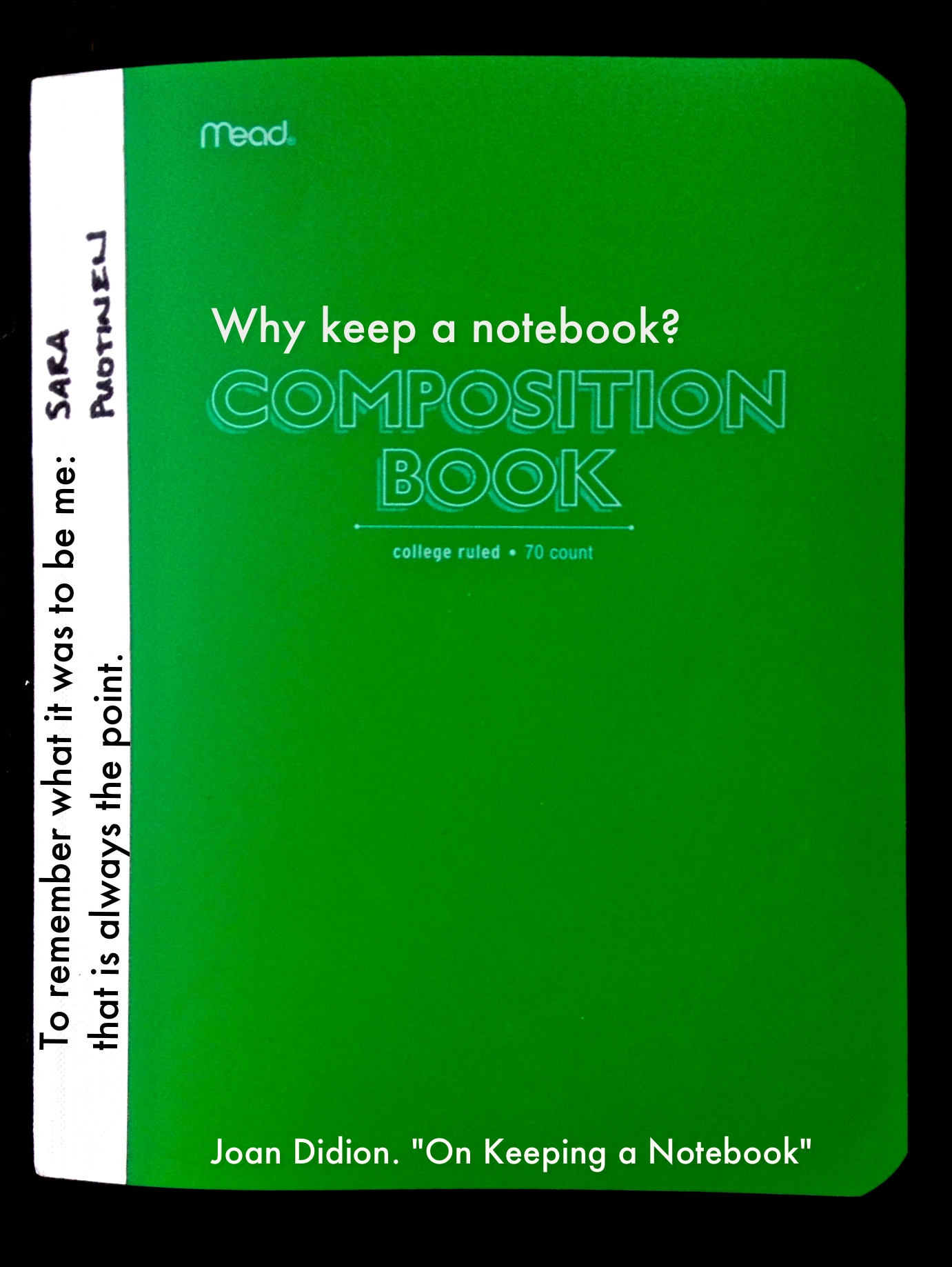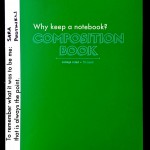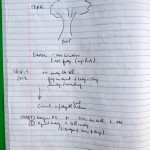This morning, I came across Joan Didion’s great essay, “On Keeping a Notebook” (via Brain Pickings). Since I love to keep notebooks—virtual ones, like on this blog, and material ones, like the several dozen composition books that I’ve written in over the past 20 years, I was drawn to the brief essay. Quickly reading through it, I was inspired to stop and pause at her pithy and honest response to why she keeps a notebook: “Remember what it was to be me: that is always the point.” Yes! In reflecting on this statement, I decided to fashion it into a problematizer for my Staying in Trouble Tumblr:
This is a picture of my current writing and researching notebook. I use this notebook for jotting down my tentative ideas for blog posts, problematizers, digital accounts and more. Why do I do it? Partly for the same reason that Didion suggests. In my post, “An urgent need to document by process/ing,” I wrote about why I blog:
I think one of the reasons I write in this blog is to create a space where I am building up an archive of ideas and experiences that I can access, remember and engage with now or tomorrow or ten+ years from now. This archive not only serves as proof of my past/present/future existence, but it enables me to craft (and imagine?) and perform a self that endures through time, space and a range of sometimes contradictory experiences and that is connected through (rooted in? beside) past selves and to generations of family members and various communities.
Writing this blog post and revisiting my words about writing and remembering my self, raises a lot of interesting questions for me. I wish I had time to explore them now. Since I don’t, I’ll pose them with the promise of returning.
Questions
1. In her essay, Didion is careful to distinguish notebook writing from diary writing (which aims to be more factual and “true”) and public writing (which aspires to share and connect with others). The notebook writing to which she refers is private and intended for and perhaps only intelligible to her. How would we categorize blog/social media writing or recording? Does it blur the line between public and private? What does/should it aim to do? Where do I fit in my own blog writing versus my notebooks?
2. Later she writes:
Only the very young and the very old may recount their dreams at breakfast, dwell upon self, interrupt with memories of beach picnics and favorite Liberty lawn dresses and the rainbow trout in a creek near Colorado Springs. The rest of us are expected, rightly, to affect absorption in other people’s favorite dresses, other people’s trout.
Is documenting the moments/fragments of our lives an unacceptably selfish activity? Is it always merely/mostly self-absorption? Just about us (the “I”)?
Didion argues that notebooks allow us to remember our past selves, to keep in touch with those selves so that we don’t forget them and so that memories of them don’t pop up on us when we least expect them. She continues:
It is a good idea, then, to keep in touch, and I suppose that keeping in touch is what notebooks are all about. And we are all on our own when it comes to keeping those lines open to ourselves: your notebook will never help me, nor mine you.
I want to think some more about this last line and what it means for the private documenting of our lives and our past/present selves. My immediate reaction is to disagree with her statement; our notebooks can be helpful to others! They are archival material that might provide some insight into who we were and what we were thinking. I know that I partly write to offer/leave an account of who I am for my kids.
But, as I think over her claim more I wonder if Didion isn’t trying to create space for a self who can remain unintelligible to others. Our notebooks don’t need to make sense to others. We don’t have to always explain what we mean. We can have a space for documenting whatever fanciful (or questionable) idea we have without having to always temper it with the question: but, will this make sense to others? As someone who has a strong impulse to be intelligible to others (but still manages to never quite be able to), this idea of a space of unintelligibility is exciting.
Speaking of unintelligible, I want to end this post with a few images from my current journal:





